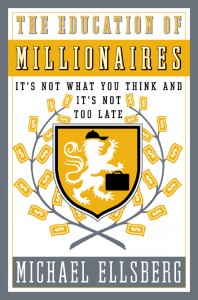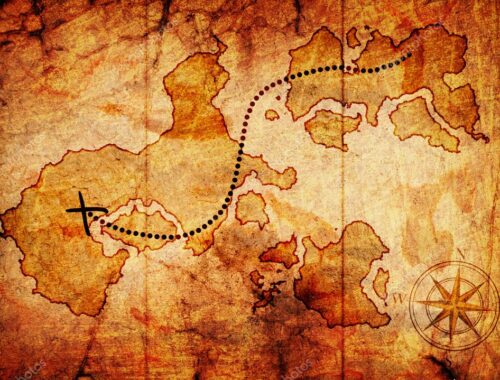(How to Make a Difference in the World Without Going Broke)
[Note: For the full Introduction to the book, click here.]
 A twenty-one-year-old singer, songwriter, and guitarist named David found himself in a hospital in Paris one night, being treated for malnutrition, in 1967. The reason he was malnourished was that he was not making a lot of money and couldn’t afford proper foods, as he played gigs at bars, nightclubs, and dances across France and Spain.
A twenty-one-year-old singer, songwriter, and guitarist named David found himself in a hospital in Paris one night, being treated for malnutrition, in 1967. The reason he was malnourished was that he was not making a lot of money and couldn’t afford proper foods, as he played gigs at bars, nightclubs, and dances across France and Spain.
No gig tonight, no eat tomorrow.
Two years before, he was in his sixth form in Cambridge, England (equivalent to the last two years of high school in the United States). David simply stopped going to his A-levels, the series of exams that determine university entrance in the UK. All he really cared about was rock music, and he dove fully into it, playing in local bands and eventually living by his wits, gig to gig, in France and Spain. Had you seen him in that moment in Paris, sickly in the hospital at age twenty-one, lacking funds to feed himself properly, you might not have thought he had made a good choice leaving his A-levels, or that he had any decent prospects in life.
And while that judgment may be correct for most starving artists, in the case of this particular artist—who was starving not just figuratively but literally—such a judgment would be as off the mark as you could get.
David returned to the UK, and later that year, a drummer he knew named Nick Mason asked him to join a little band they were putting together called Pink Floyd. The band went on to sell over 200 million copies of its albums over the next forty-plus years. The Dark Side of the Moon, the band’s most famous album, has sold upward of 45 million copies worldwide and ranks among the greatest-selling, most critically acclaimed, and most influential albums of all time. As lead guitarist, co-lead vocalist, and songwriter for the band that produced so many hits for over forty years, David Gilmour is easily one of the most important musicians in the history of rock.
I count myself as a fan. I thank David personally for providing the soundtrack to so many blissful nights in university, philosophizing about the meaning of life or making love instead of studying. Some of the most educational parts of my college experience, truly. And the music still brings joy, inspiration, and awe to my life—and surely to millions of others—a decade out of college. David Gilmour has made a massive difference to the lives of many people on the planet. The world would be a much poorer place without him and his music. He has lived—I would say—a deeply meaningful life.
Yet, there is something profoundly unsettling about his story as well—and indeed, about the story of just about anyone who has made a great difference in the world.
A year before he became famous, David was roughly the same musician, with roughly the same musical gift, and the same die-hard determination to make an impact on the world of music and live a meaningful life. At that time, however, the world didn’t care much about whatever impact he wanted to make on it or what “meaning” he wanted to create within it; in fact, in exchange for his musical gift, the world barely rewarded him enough to keep himself alive. One of the most monumental musicians in the history of rock nearly died as a starving artist, before he and his band got “discovered.”
All of us—at least the most idealistic among us—want to make a difference in the world, whether it’s in business, the arts, politics, philanthropy, science, or technology. At the very least, we want to make a difference in our communities. This is what feels meaningful to us: making a difference, having an impact, living for a purpose.
Yet, there’s a paradoxical aspect to “making a difference” and “having an impact.” The world doesn’t always care whether we want to make a difference or have an impact on it. In fact, it can be downright hostile to us when we try. The world doesn’t automatically open its arms to us just because we have good intentions. It may laugh at our great sense of “purpose” or, more commonly, simply yawn and turn its head to something else.
At the highest levels of success, there’s a capricious aspect to making a difference in the world and living with purpose, which we must come to terms with squarely before we start talking about “secrets to success,” “success skills,” and so forth. Indeed, I asked David about the secret to his success, and he gave me a frank answer: “I got very lucky. Luck plays a big, big part in the kind of success I’ve had. They say you have to make your own luck, but I’m not too sure of that sometimes. There are a lot of people I know who had the same determination I had, followed my same path and threw their lot into the music business without going to university, and didn’t end up making a successful living playing music. They were thereafter stuck in jobs which were fairly hand-to-mouth. They were not doing what they could have done with their lives if they continued with their studies. It’s absolutely not a course I would recommend to anyone, unless you were absolutely 110 percent convinced that your passion was something you had to do and you would be willing to forsake a lot of other things for it.”
Very few of us, when we dream about the kind of impact we want to make on the world, dream about things we could achieve with little risk. Very few of us dream of staying anonymous middle managers, or paper pushers lost in sprawling bureaucracies for the rest of our lives. That doesn’t feel like much of a purpose at all.
No, our dreams and purposes are the stuff of romance, adventure, and excitement. We dream of becoming famous, wealthy, of making a big mark on the world. We dream of becoming rock stars. If not literal rock stars, like David, then some other kind of star: a famous athlete, actor, writer, filmmaker, artist, politician, lauded scientist, CEO, or millionaire or billionaire entrepreneur (such as some of the entrepreneurs I interview in this book). Or we dream of making an impact in a traditional profession, such as law, medicine, or academia, or making a great impact in our community in a position of leadership or charity. Perhaps we dream of being a star teacher and making a difference in hundreds of children’s lives.
Yet, such dreams of making a difference always involve risk. The more you want to be a star in your respective field—whether it’s being a teacher, a doctor, a lawyer, or an artist, musician, or entrepreneur—the more risk you will have to take in your career choices. Few people become stars in their industry, make a difference to the lives of lots of people, or find a sense of purpose in their career simply by sticking to the script and hewing close to well-trodden paths.
You can take a stadium full of highly talented twenty-one-year-olds with lots of drive and determination, all passionate about making an impact on the world in the ways young people dream about, in fields such as music, art, writing, acting, filmmaking, politics, policy, science, technology, media, philanthropy and charity, or entrepreneurialism. Out of this whole stadium of talent, only one or two of these young people will become superstars in their respective fields, on the level of a David Gilmour.
Many in that stadium will end up flat on their asses, broke. That’s a terrifying prospect. In response to such prospects, out of fear, many young people in that stadium will stop sticking their necks out in their careers, clinging to safe scripts in their careers, where there’s little risk of failure and equally little risk of achieving anything truly remarkable.
What distinguishes these one or two superstars who reached their dreams and made a huge difference, from the rest of the talented, ambitious, idealistic individuals in that stadium?
I’ve asked many superstars their secret for success. While they all mention talent, persistence, drive, determination, believing in yourself, never giving up—the standard chestnuts of the self-help literature—the most honest and self-aware of the superstars, such as David Gilmour, add an additional factor to the list. They also pay respect to the role of serendipity, synchronicity, and random chance. The stars shone on them. The gods smiled upon them. The right place at the right time. Simple, blind luck.
They don’t call it a “lucky break” for nothing.
If there wasn’t risk involved, and the fear that accompanies that risk, we wouldn’t be dreaming about it, we’d have already done it. (The grocery store is always hiring checkout clerks. If your dream was to become a checkout clerk, you could be living your dream right now. But I’m willing to bet that’s not your dream.)
So, how do we reconcile our deepest dreams of making a difference on the world—our dreams of leading a meaningful, impactful life, a life of purpose—with the stark reality that the world doesn’t always care what kind of difference we want to make or give us an A for effort?
Navigating these rocky existential waters is one of the most important aptitudes you could develop. Err too far in either direction, and it’s very unlikely you’ll end up happy in life. Err too far on the side of reaching for lofty dreams within your career, without any attention to existing market risks and constraints, and you may end up, as David did at twenty-one, in a hospital for malnourishment, at least metaphorically speaking. And few people who end up in that place of starving-artist-hood have the fortune to get out, as David eventually did.
Yet, err too far in the other direction, giving in to fear and sticking to the safe path, without even a nod to the larger impact you want to make, the greater purpose you want to achieve, and you may end up feeling like you missed out. You may enjoy some level of predictability or security in your income, but it won’t feel very satisfying to you inside. Few people would call this “success.”
Therefore, at the outset of any discussion of success, what you need is not another motivational rah-rah lecture on “believing in yourself” or “never giving up” or “working harder,” the standard fare of other books. What you need is an honest discussion of how to navigate gracefully among dreams, risk, and ruin in the real-world marketplace.
Next: The Conflict of Making an Impact versus Living a Predictable Life

